
Search

Search

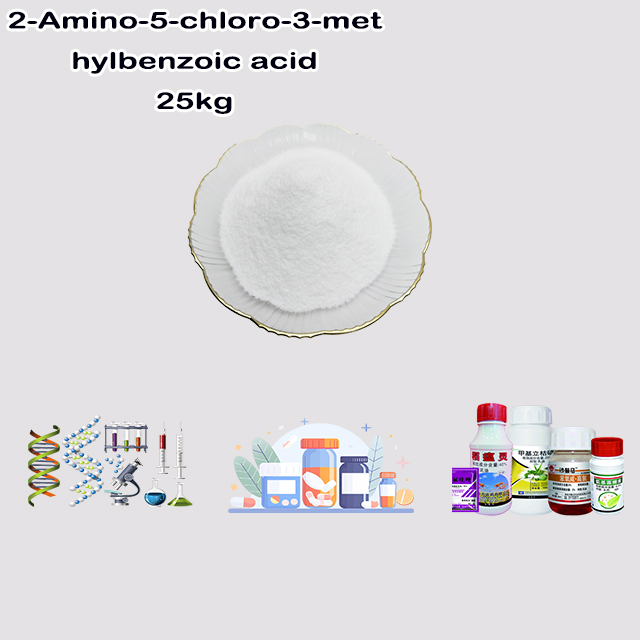

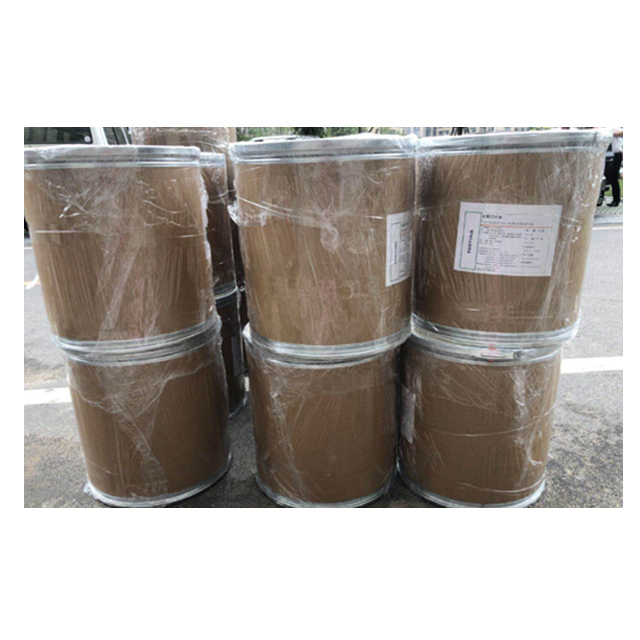





2-Amino-5-chloro-3-methylbenzoic acid (C₈H₆ClNO₂) is a substituted benzoic acid with a benzene ring bearing a carboxylic acid (-COOH) at position 1, an amino group (-NH₂) at position 2, a methyl group (-CH₃) at position 3, and a chlorine (-Cl) at position 5. This amphoteric compound (acidic -COOH and basic -NH₂) is synthesized via nitration, chlorination, and reduction of 3-methylbenzoic acid. Primarily used as a pharmaceutical intermediate, it aids in synthesizing diuretics, antibiotics, or agrochemicals. Its functional groups enable derivatization (e.g., amide bonds). Handle cautiously—irritant, store away from oxidizers.
2-Amino-5-chloro-3-methylbenzoic acid is a substituted benzoic acid derivative with the molecular formula C₈H₆ClNO₂. Below is a detailed breakdown of its structure, properties, synthesis, and applications:
Core: A benzene ring substituted with four functional groups:
Carboxylic acid (-COOH) at position 1.
Amino group (-NH₂) at position 2.
Methyl group (-CH₃) at position 3.
Chlorine atom (-Cl) at position 5.
Numbering: Positions are assigned relative to the carboxylic acid group (position 1).
Amphoteric nature: Contains both acidic (-COOH) and basic (-NH₂) groups, enabling zwitterionic behavior in aqueous solutions.
Electronic effects: The electron-withdrawing -Cl and -COOH groups and electron-donating -CH₃ and -NH₂ influence reactivity.
Appearance: Typically a white to off-white crystalline solid.
Solubility:
Soluble in polar aprotic solvents (e.g., DMSO, DMF) and alcohols (e.g., methanol, ethanol).
Limited solubility in water due to the hydrophobic benzene ring.
Melting Point: Expected to be moderately high (150–250°C range) due to hydrogen bonding and aromatic stacking.
Starting Material: Often derived from 3-methylbenzoic acid.
Key Steps:
Nitration: Introduce a nitro (-NO₂) group at position 2 (directed by -COOH and -CH₃).
Chlorination: Electrophilic substitution at position 5 (meta to -NH₂ after reduction).
Reduction: Convert the nitro group (-NO₂) to an amino group (-NH₂) using catalysts (e.g., H₂/Pd) or reducing agents (e.g., Sn/HCl).
Challenges:
Protecting the amino group during chlorination to avoid side reactions.
Managing regioselectivity due to competing directing effects of substituents.
Pharmaceutical Intermediate:
Used to synthesize bioactive molecules, such as diuretics (e.g., analogs of furosemide) or antibiotics.
The -NH₂ and -COOH groups allow further derivatization (e.g., amide bond formation).
Agrochemicals:
Potential building block for herbicides or fungicides due to its halogen and aromatic structure.
Research:
Explored in organic synthesis for constructing heterocycles or metal-organic frameworks.
Handling: May cause skin/eye irritation. Use gloves, goggles, and proper ventilation.
Storage: Keep in a cool, dry place away from strong oxidizers (due to -NH₂ sensitivity).
This compound exemplifies the versatility of benzoic acid derivatives in drug discovery and materials science. Its functional groups enable diverse reactivity, making it valuable for designing molecules with tailored electronic and steric properties.



Fortunachem Provides Not Only Professional Chemical Products But Also Professional Help
Keeping you up-to-date with all the latest information, news, and events about Fortunachem!

Quick Links
Add:
E-mail:
 English
English  Español
Español  français
français  العربية
العربية 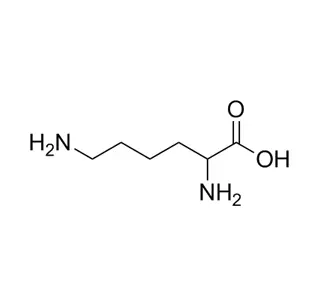
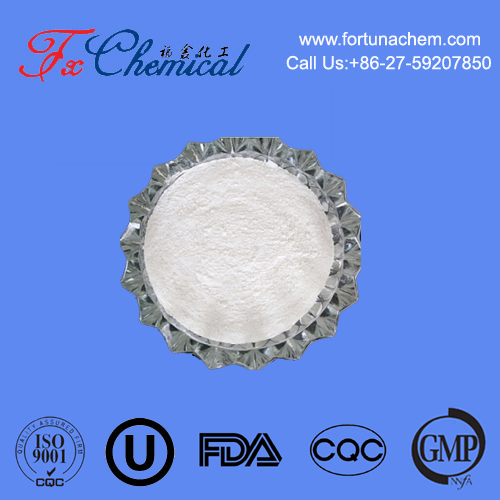
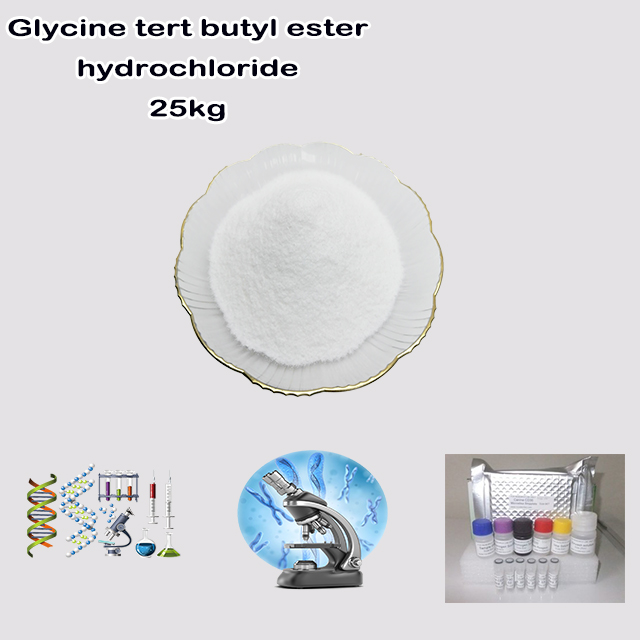
-Asparagine_monohydrate主图.jpg)



